Great Britain in turmoil
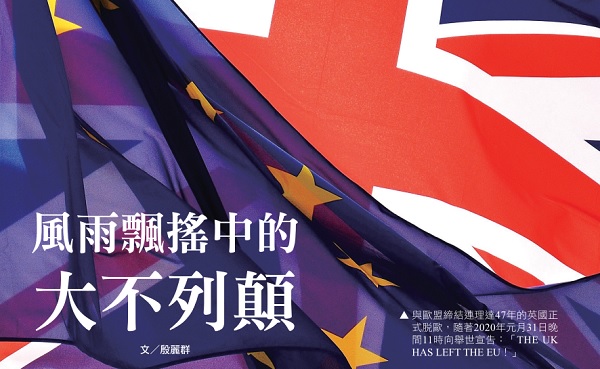
▲The UK, which has been associated with the EU for 47 years, officially left the EU. At 11:00 pm on January 31, 2020, the UK announced to the world: "THE UK HAS LEFT THE EU!"
Speaking of the general trend of the world, if we divide for a long time, we will unite, and if we unite for a long time, we will divide!
The epilogue cited by Luo Guanzhong in "The Romance of the Three Kingdoms" runs through ancient and modern times, both at home and abroad, and is equally applicable to Britain in 2020. The United Kingdom, which has been associated with the European Union for 47 years, officially left the European Union. As the Big Ben bell rang at 11 o'clock in the evening on January 31, it was announced to the world: THE UK HAS LEFT THE EU!
end and beginning
On June 23, 2016, former Prime Minister David Cameron followed public opinion and held a "Brexit referendum". He supported remaining in the European Union and was sure that "Remaining" would win. Many people held the same belief, and some even ignored their votes and did not go to the polls. Those who campaigned for Brexit voted actively for fear of losing. As a result, Brexit was achieved by only a slight difference, 51.9:48.1, a gap of less than 4%. Soon, Cameron withdrew from politics and gave way to Theresa May. The female prime minister hopes to revive the reputation of the "Iron Lady" and lead the UK to a successful Brexit, which has brought about a situation where the UK is almost torn apart and the country with a stable Christian cultural background is facing the most severe test since World War II.
While the British government and the European Union are preoccupied with Brexit negotiation issues such as borders, trade, and immigration policies, aspects closely related to people's livelihood, such as health care, disadvantaged welfare, and social security, have been seriously ignored. Seeing how political differences can tear society into pieces, the whole country feels helpless and sad.
At the dawn of time when Big Ben revealed the historical truth that "what lasts long must divide", Prime Minister Boris Johnson, who successfully led the United Kingdom out of the European Union, vowed to "unite the country and lead everyone forward" and "will usher in a new era." "National rejuvenation and innovation", "making Britain a European power", "this is not the end, but only the beginning."
This "end" and "beginning" affect international diplomatic relations and trade exchanges and will restructure the chess game; the United Kingdom, the European Union, and other countries around the world are heading towards an unpredictable future, with unpredictable fortunes and misfortunes!
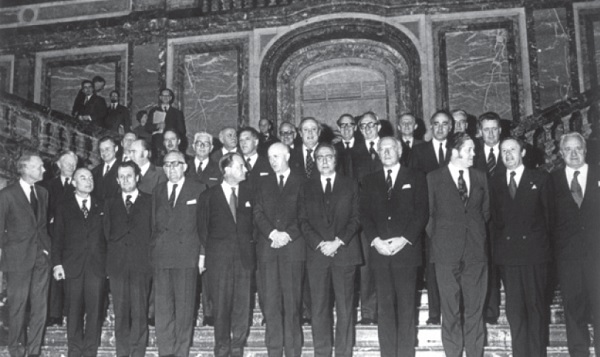
▲The UK officially joined the EU in 1973.
Brexit sentiment ripples among people
The UK and the EU are not on the same page, and this began to emerge during the post-war reconstruction period in the 1950s.
The ancestor of the EU was the "European Coal and Steel Union" first established by "France, Germany, the Netherlands and Benelux" with the purpose of ensuring European peace through the control of military and industrial materials; then, the six countries established the "European Economic Community" ( CCE) is the beginning of free trade among member countries. However, skepticism against European unity rippled across the UK, and Britain did not join both times because of its different ideas and ideas. 11
Even though it officially joined the European Union in 1973, the once-prominent "Great British Empire" still had difficulty adapting to and following the EU's rules, and felt that its national sovereignty was compromised. When Mrs. Thatcher was in power, she complained that the UK had contributed too much, which was unreasonable, and she wanted to demand compensation from the EU. In the future, the wave of immigrants from the EU and non-EU countries will directly impact the labor market and divide the UK's medical and welfare resources, and the public's sentiment towards Brexit will become more intense. Moreover, the poor life of the grassroots people has deepened their resistance to European integration led by the elite. When these emotions are rampant, other classes are also secretly pessimistic about the country's prospects, blaming social contradictions and the current economic recession on integration, exacerbating the self-conservatism of the British people and their desire to leave the EU and become independent.
The major discovery of "Hai Li's Proposition"
The perfect welfare system and orderly social civilization make Britain stand out in Europe. Immigrants flock in and "share" resources, making them feel disadvantaged. At the same time, the cornerstone standing behind these resources is the Christian faith that supports the development of British society. Faith, however, is also declining.
早於廿世紀初,法國歷史學家哈愛理(Élie Halévy, 1870-1937)分析前兩世紀的歐洲情勢時,已觀察到英國與歐洲列國迥異之處,曾問:「何以在歐洲各國中,英國成為最不(沒有流血)革命、沒有嚴重危機及突發變革的國家?」2指出答案非關英國政經體制,而是與循理宗創辦者約翰‧衛斯理(John Wesley, 1703-1791)所領導的福音派復興運動密切相關,福音派復興運動是當時英國社會走上全面革新之路的終極主導。這論點成為著名的「哈愛理命題」(The Halévy Thesis)。
John Wesley lived in the Industrial Revolution era, which was a period of great political, economic and social turmoil in the UK. At that time, the rural population migrated to the cities to work. The poor working class worked hard, but the aristocrats were extremely extravagant and monopolized the rule of law and administration to exploit the weak. The Anglican Church was among the aristocrats. Under control, it became cold and corrupted, lost its spiritual power, and its clergy was mixed.
Corruption aroused the thirst for justice, and Wesley's evangelical movement came into being. It started by calling believers to confess their sins, repent, and experience rebirth. By establishing small groups, it attracted a large number of members and established mutual aid and care groups. It went deep into the corners of poverty, cared for the vulnerable, and implemented "God's love." Biblical truth for the world. 33
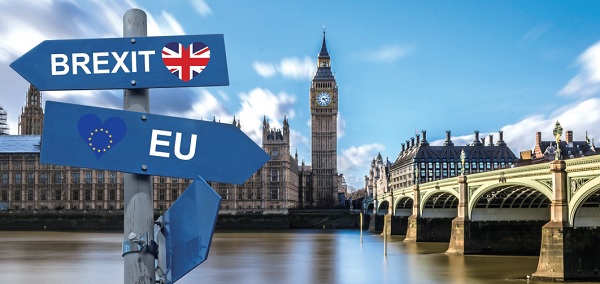
▲Brexit will affect international diplomatic relations and trade exchanges. The UK, the EU and other countries in the world are heading towards an unpredictable future, with unpredictable fortunes and misfortunes!
modern welfare state
Wesley carried forward the humanitarian spirit of Christianity, launched a series of social reform actions like a torrent, launched a large-scale charity, established orphanages, nursing homes, and civilian free clinics, distributed food and clothing, provided living allowances, and interest-free loans to the unemployed in the church. To the poor, open "training schools" to teach the poor people the skills to make a living, and provide education for their children. This sensational revival movement in the history of the church broadened the horizons of the nobles and rulers, awakened their social conscience towards the vulnerable and helpless, led the country to embark on a path of innovation with humanitarian care as the main axis, and laid the foundation for Britain to become the first country after World War II. A solid foundation for a modern welfare state. 44
Wesley brought the awareness of charity and social care into the 18th century Britain, allowing residents in the 20th century to enjoy free medical services provided by universal health care, free primary and secondary education, unemployment benefits, disability benefits, low-income housing subsidies and living allowances . In addition, the volunteer activities involved in service and care later developed into a highly professional discipline - the "Department of Social Work", which has spread to universities and colleges around the world. Social workers are a noble profession in advanced countries. They are the magical lubricant that assists government operations and coordinates the relationship between the upper and lower classes of society. 55
英國人向來給人溫潤樸實的感覺,不似德國人的先進務實,也沒有法國人的浪漫熱情,被幽默大師林語堂譽為「最健全的民族」,具「民族穩定性的表現」6。衛斯理帶來的革新為二戰後的英國描繪出社會重建藍圖,而整全的福利制度著實對戰後人心發揮療效,讓百姓重拾安穩自足的生活。是故,英國人感到自己有足夠的能力重整國家,無法認同歐洲一體化。
Now, it’s Brexit. When people re-examine the country's resources, can they realize that these welfare policies that attract immigrants from EU countries are actually assets given to the UK by God? Was it the nail-scarred hands of Jesus Christ that launched today’s social welfare system through Wesley’s spiritual revival movement? However, the religious situation in the UK has returned to the path of decline that it once was, indifferent and losing vitality! Living in an environment of welfare security, the people of the island country feel empty and depressed. Many people use drinking and carnival to relieve the dull and dull days.
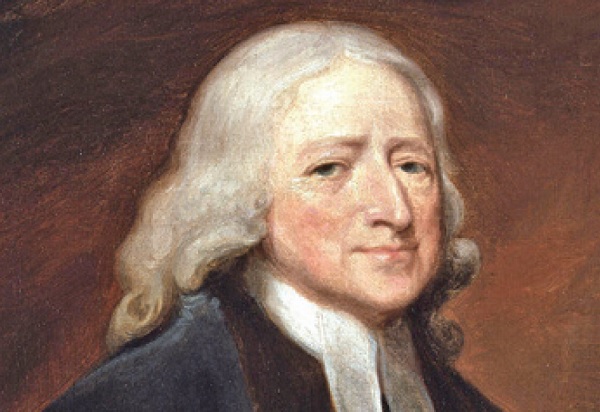
▲John Wesley brought the awareness of charity and social care into England in the 18th century, allowing people in the 20th century to enjoy free medical services provided by universal health care, free education in primary and secondary schools, unemployment benefits, disability benefits and low-income housing subsidies and living allowance.
The light of truth illuminates the heart
"Drinking to relieve boredom" originated from the poor working class in Britain, but it has become a popular leisure culture for everyone today. Using alcohol to anesthetize an empty soul and escape the pressure of survival is a common phenomenon in British society, causing serious problems that undermine family and public order. After the drunkard sobers up, he falls into a deep sense of loss and ennui, and feels even more powerless about real life. To save a sick society, God never starts with economics, trade or diplomacy, but uses truth as a channel to lead people to experience real healing.
At the end of the 18th century, the innovations led by Wesley soon faced a test. The urban lifestyle initiated by the Industrial Revolution gradually disintegrated traditional family life. In addition, the evolution theory of the British biologist Charles Darwin (1809-1882) in the 19th century Lift your head and challenge the authority of biblical truth. At that time, the streets of London were full of orphans, and the church regarded the Bible as an outdated relic. In order to revive the faith, God intervened and used Charles Spurgeon (1834-1892), the “Prince of Preaching” who had fought against sin and experienced rebirth in the Holy Spirit, to pour powerful and living messages into people’s hearts and light up the depths of believers’ souls. The beacon of light illuminates the entire era.
Spurgeon believed: "Christian faith must be illuminated in front of everyone before it can have an influence on national decision-making." He dared to talk about national affairs from the podium, and also promptly criticized policies that violated the truth. He firmly believed that the quality of all policies depends on whether they are good or bad. Follow biblical principles. He opposed political opportunism, but did not agree with political indifference. He taught believers to vote with a prayerful attitude and urged Christians to become public servants. He believed: "The more people can adhere to the standards of their faith, the more qualified they are to be in the British House of Commons. Go." 77
This ancient gospel is a source of excitement!
Spurgeon held the sword of the Holy Spirit, piercing the dry well of people's souls and digging out the living springs of joy. His message upheld the salvation of the cross and the sovereignty of God, and emphasized the need to deal with sin thoroughly by relying on the Holy Spirit. At that time, it stirred up a whirlwind of thirst for the truth. From the Queen and Prime Minister to prostitutes and thieves, people from all walks of life poured into London to listen. He preached. News reports at the time said: “Spurgeon brought a religious fervor unheard of since the days of John Wesley.”
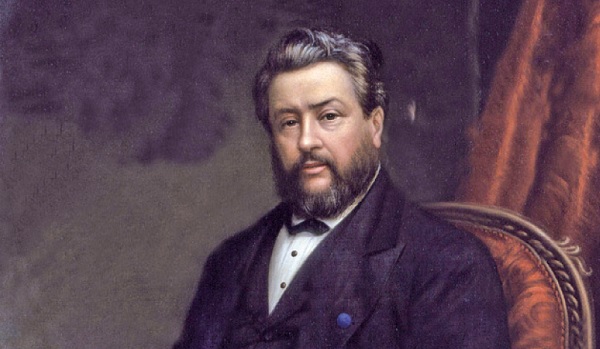
▲Spurgeon believed: "The more people can adhere to the principles of faith, the more qualified they are to be in the British House of Commons."
Rekindling Wesley’s Humanity
The UK has crossed the threshold of Brexit, and the terrifying new crown epidemic is about to come! In the midst of the war and chaos, the British government's anti-epidemic response reversed from "herd immunity" to "confinement order", but the death toll from the epidemic continued to rise, reaching the "top of Europe." In an instant, the whole country responded calmly and focused on fighting the epidemic, and the follow-up measures for "Brexit" were shelved.
Witnessing the collapse of medical care, the philanthropic cultural spirit left behind by Wesley's social reforms soon bloomed again across the country. 750,000 "Good Samaritans" volunteered to become medical care volunteers, responsible for calling and providing support to those living alone and isolated at home. For the elderly and frail, we provide actual shopping, medicine collection, and transportation to and from the hospital. In addition, tens of thousands of retired medical staff and many recent medical graduates have also joined in to support frontline rescue work.
While bars are closed during the anti-epidemic lockdown, countless churches in the UK are opening their doors online. In addition to online worship on Sundays, there are also frequent online group Bible studies, prayer meetings, youth fellowships and Holy Communion meetings during the week. , allowing members to maintain close interaction. People who do not go to church on weekdays also attend online gatherings, listen to hymns and truth messages, and draw on the power of peace from their faith.
During the epidemic, members of the church donated living supplies to each other, encouraged each other with scriptures on Facebook, and shared creative and novel home teaching methods and interesting stories about family life. In mid-May, 70 church groups across the UK sang "Blessing" and spread it widely through online media, injecting Christian enthusiasm into society. Church schools that are closed are also sending out letters to parents every day to convey the message of Christ’s love for the world, teaching people to pray and inspiring students to think about God’s will in light of the epidemic.
Members of the University Christian Fellowship invited emotionally distressed classmates to drink tea and chat online, boosting each other's morale through relaxed and sincere conversations... In short, everyone is doing their best as children of God, trying to spread joy and positive energy in this biggest wave of death since World War II, so that the hope of Christ can sustain people's hearts.
In addition, ordinary people also display the spirit of friendship and mutual help. Neighbors set up groups to exchange text messages to greet each other and help each other with purchases. Some people freed up empty rooms in their homes to receive friends who had mild symptoms of the epidemic but had no place to isolate themselves to recuperate in peace. Some hotels have opened their vacant rooms to house homeless people on the streets, and there are even volunteer teams providing meals and delivering meals to them, so that people on the margins of society can get life protection.

▲Britain's "Brexit transition period" has been brought back to Christianity by the epidemic. It can be seen that many people are seeing a glimmer of spirituality. The truth of the Bible is shining across the country, urging people to truly repent and love others practically.
spiritual awakening moment
This is a lost era, but also an awakening era!
During the "Brexit transition period" in the United Kingdom, the epidemic has brought back the Christian faith. It can be seen that many people are seeing a glimmer of spirituality. The truth of the Bible is shining across the country, urging people to truly repent and love others in a practical way.
Spiritual awakening precedes national rejuvenation, and post-Brexit and post-pandemic reconstruction is a long road. I sincerely pray that the turbulent Great Britain will completely return to Christ, eager to pursue the truth, and reverse the fate of the country.
Notes
1. "A Century of Changes in the British Labor Party", BBC reporter Pickford, 27/02/2000,http://news.bbc.co.uk/chinese/trad/hi/newsid_650000/newsid_658900/658960.stm.
2. “Why [is] it that of all the countries of Europe, England has been the most free from revolutions, violent crises, and sudden changes?”
From:“A History of the English People in the Nineteenth Century: England in 1815 v.1” by Élie Halévy
3. "Steward of the Poor", Chen Fengxiang (contained in "Faith, Hope, Love Labor Day Album").
4. "Looking at the driving force of social reform from the perspective of the revival movement led by John Wesley", Chen Qifeng.
5. "Professionalism vs. Managerialism: An Examination of the History of British Social Work", Hou Jianzhou and Huang Yuanxie.
6. "The Art of Living", Lin Yutang.
7. Charles H. Spurgeon AboutBible.net.
Yin Liqun, was born in Hong Kong, has a master's degree in preaching from the seminary, and has been engaged in literary work in evangelical organizations and Christian newspapers. After getting married, she went to England to study with her husband. Since then, she has been taking care of the family full-time, occasionally working as a part-time dance teacher. She has been living in Northern England and has three children. I have been writing for 20 years, and now that I am middle-aged, I am starting to write again for God. I wish I could write for Him for the rest of my life. He has won several essay writing awards, and his articles have been published in Cosmic Light Magazine, Christian Tribune, Feiyang Magazine, Kingdom Revival Newspaper, Hong Kong Christian Weekly, etc.
